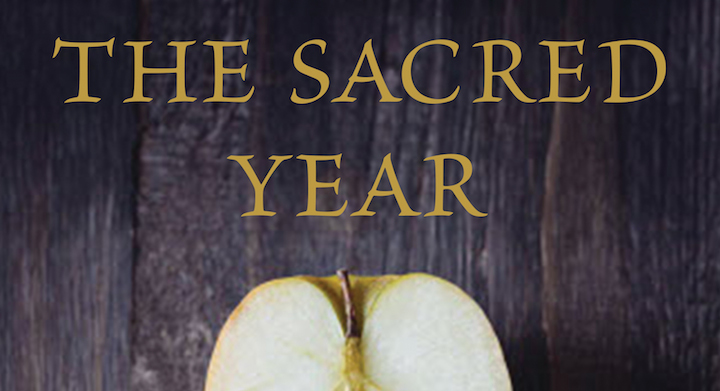Some Christians find themselves more naturally inclined toward activism—toward throwing themselves into the mix of it all. Others find that contemplation—an orientation toward rhythms of silence, prayer, intercession, etc.—is a more apt way to express their faith.
I have often found myself bouncing like a pinball between these two “poles, ” living for a season in the activist camp and then—usually after burning out—finding solace and nourishment along the contemplative way.
But whenever I return to the Gospels, I am always struck by how these two seemingly incompatible ways of life are interwoven into a synergistic whole, into a dynamic unity within the person of Christ.
Something else I’ve noticed is the shocking ease with which so very many of us seem to be willing participants in “The Christian Carnival.” By this I’m referring to the temporary, cracked-paint façade of faith we hurriedly construct every now and then, but behind which there is in fact little—or maybe no—flourishing reality.
Let me be blunt: I’ve grown weary of the Christian Carnival. Lately the roller coaster has made me want to vomit, and the cotton candy is just making it worse.
I shared my desolation and frustration with a wise spiritual director who encouraged me to dedicate a year to practicing my faith instead of just talking about it. “Faith is meant to be less the episodic roller-coaster you’re describing, ” he said, “and more about an intentional way of being in the world.”
Thus began The Sacred Year, an intentional pilgrimage into many different forms of spiritual practice—some new, some old—all motivated by a deep yearning to be shaped and formed, reformed and revived, after becoming woefully jaded and disillusioned.
What I’ve learned is that there’s good news in the Way of Jesus for both activists and contemplatives. Here’s a practice to consider for each.
The Daily Examen
St. Ignatius of Loyola (1492-1556) is the source of the Daily Examen. He taught that, in God’s presence and having asked the Spirit for guidance, we take a period of time (15-30 minutes) to intentionally reflect on our past day. As we review, Ignatius suggests using the language of “Consolation” and “Desolation” to become increasingly aware of the leadings of the Spirit in the midst of our everyday experiences.
The Examen seemed strange when I first began practicing it. Ignatius’ structure felt somewhat rigid and constraining. But as the weeks stretched into months, the Examen’s rhythm became a sort of magnifying glass through which I could inspect the events, conversations, and feelings that occurred in my days.
Slowly, I began to notice more of what was affecting me, and—more importantly—how it was affecting me. I began to see patterns of action, inaction, and reaction in my life that I’d never noticed before.
In the prayerful context of the Examen, these insights emerged not in a judgmental, self-chastising sort of way. It almost felt like I was sitting in the presence of a kind and able doctor, being guided slowly and consistently toward increasing health.
For someone who is addicted to action, the Daily Examen has become an essential antidote, a way of being regularly re-oriented toward health and flourishing amidst a very full and demanding life.
Protest
Ask the average person what they think “Protest” means, and they’ll probably tell you it’s taking to the streets against something you disagree with.
The emphasis in this idea of “protest” is on being against—against injustice, against oppression, against violence.
This is a rather interesting way to understand what “protest” means, considering that it is exactly opposite what the word originally meant. Our English word “protest” comes from two Latin roots: “pro” meaning “to or toward, ” and “test, ” which is the root from which we get words like “testimony” and “the New Testament.”
The original meaning of the word “protest” isn’t to be against something, but rather to be for something.
The spiritual practice of Protest is—first and foremost—about being for the Kingdom of God. That is, Protest is about being for a world where things like injustice, oppression and violence are no more.
This seems like a subtle shift at first, but I have found that it makes a huge difference. Instead of an orientation against, the root meaning of “protest” invites us to orient ourselves toward the coming Kingdom of God.
The first protest I participated in was aimed at achieving more affordable housing in our highly gentrified city. The haphazard group of us who gathered on the busy street corners one Saturday morning were soon soaked by a downpour.
Jane, a homeless woman who’d joined in the protest, smiled up at the sky. “Don’t worry, ” she said to me. “You get used to the rain.”
A little later a well-dressed woman stopped in front of me, anger evident on her face. “What are you all complaining about this time?” The vehemence of her tone took me entirely by surprise.
“Well, actually, ” I said, scrambling to collect my thoughts, “we believe that everyone in our city deserves a safe and affordable place to live. We’re not complaining; we’re hoping.”
Her face softened and she looked at Jane and her placard. I saw how this approach to protest disarmed her anger. “I believe people need affordable housing as well, ” she said after a moment. “I expected you to be antagonistic, angry, offensive. It’s much easier to write you off when you’re that way. But hope is harder to disregard.”
Protest invites contemplatives to manifest the hope that the “already” and “not yet” aspects of the Kingdom of God will not always be separate.
After years of the Christian Carnival, spiritual practice is a profound invitation to follow the Way, the Truth, and the Life in Christ.
Retweet this post for a chance to win a free copy of The Sacred Year from Thomas Nelson.

